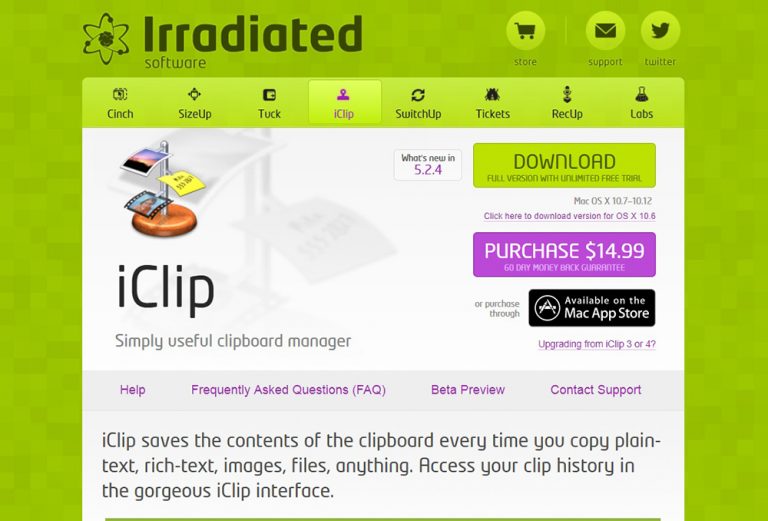

- X clipboard manager install#
- X clipboard manager software#
- X clipboard manager password#
- X clipboard manager windows#
Meanwhile, removing xfce4-clipman (or clipit) is as simple as a single apt command - any user config files left over are very small and completely harmless.Middle-click paste is also supported on Wayland these days, though not all applications/toolkits and compositors might support the extension. If there was a community-wide outcry, sure we could consider dropping it, but I don't think the security consideration counts for much. As said, clipit, or some clipboard manager, was present from CrunchBang days so some people at least found it useful.
X clipboard manager password#
)Īll use cases are different - personally I don't use a password manager, but often make use of the clipboard manager.

( eg imagine, without a clipboard manager, going over a document - or several documents - copying snippets of text and then pasting them, in some arbitary order, into a message. The clipboard and primary selection will remain, with or without a clipboard manager.Īs has pointed out, the Linux clipboard has builtin security issues anyway, and the incremental insecurity of running a well-designed clipboard manager has to be balanced against the extra convenience, which for those who use it, is considerable. It is not a good idea to use copy-paste for important passwords, hence the recommended use of keypassXC. (I'm pretty sure clipit had such an option too.) There is an option not to save history on quit, in which case there are no plain text files anywhere. through an iPad with external keyboard and/or display.įWIW the likely replacement for clipit in Beryllium is xfce4-clipman. The OS with the best "desktop" (as opposed to "server") security model at the moment very likely is macOS, and by extension, iOS when used e.g. Only recently people have begun addressing these issues for example, another problem is pulseaudio - any application that can play back audio is able to escape any sandbox as long as it access to the pa daemon -, but pipewire tries hard to incorporate security in its design as well. Linux servers can be hardened really effectively in a pretty simple way all the mentioned security problems are a result of how "desktop" is implemented on Linux. Note that this does only apply to Linux "desktops" (all of them). This approach comes with loosing a lot however, such as hardware graphics acceleration in most cases. qubesOS is the only Linux system that has made a strict desktop security model somewhat usable and managable on Linux (based on Xen VMs). The only solution to get truly isolated GUI applications, including separate and gatewayed clipboards, is running every GUI client in a separate X server or compositor. Lockscreens are pretty much useless on Linux as well (in terms of security) and should be thought of as cosmetic.
X clipboard manager windows#
This is why the Linux desktop has extremely weak security in the sense of weak GUI app isolation when compared to Windows and MacOS, which have both superior isolation models available.

Apart from that, everything is open to any foreground or background application that runs as your user and that has access to the X or wayland display.
X clipboard manager software#
The only software that has clipboard security built in which you are using is probably the web browser websites are isolated such that they can only get what's in the clipboard when the user explicitly presses ctrl+v. Any X or Wayland client can write and read whatever is in the clipboard. However, it does not matter whether clipit or xclip or any other tool specifically designed to work on the clipboard, including password managers, are installed at all. You're absolutely right about the clipboard. Why is such an open security risk pre-installed and active?
X clipboard manager install#
After realising that a passwordmanager is useless if some app snags everything from the clipboard and stores it in plain text the first thing for me to do on a new BL install is to remove clipit.


 0 kommentar(er)
0 kommentar(er)
